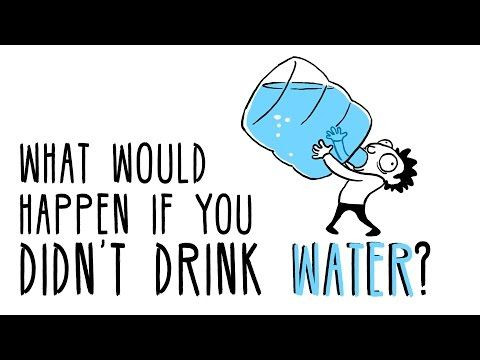Stay Hydrated: People Who Stop Drinking Water Risk Brain Shrinkage, Chronic Diseases

Nearly 60 percent of the average human body is made up of water. In many ways, we are water. Three-quarters of the brain and heart are made up of water, 83 percent of the lungs are water, and even dry, brittle bones consist of 31 percent water.
Drinking enough water each day, then, is way more important than it seems. Water lubricates bones and joints, regulates body temperature, and nourishes the brain and spinal cord. Without water, you’d quickly lose energy, see a drop in mood and blood pressure, and feel your skin getting drier. Chronic dehydration, which refers to not drinking enough water over a long period of time, can contribute to disorders like diabetes, weight gain, skin problems, high cholesterol, high blood pressure, digestive issues, fatigue, and constipation.
Hydration is something to take seriously, though we probably often go through every day never realizing how dehydrated we are. A new video from TED-Ed describes the bodily processes involved when you don’t drink enough water — or when you drink too much.
When your body gets dehydrated, sensory receptors in the brain’s hypothalamus — an area that’s referred to as the thirst center — signal release of an antidiuretic hormone. This hormone reaches the kidneys and triggers aquaporins, special channels that allow blood to retain more water, making less water leave your body. This causes darker urine when you pee. Dehydration can have an impact on many parts of your body; it can cause fatigue, lowered cognitive function, mood issues, a drop in blood pressure, and skin moisture.
A dehydrated brain actually shrinks due to lack of water, and it has to work harder to accomplish the same as a hydrated brain. In fact, the brain activates coping mechanisms to maintain function in extreme dehydration, though this can only last so long: If you stop drinking water completely for days, your body will experience even more severe effects and eventually death.
So if dehydration can have such negative effects on our bodies, how much water should we really be drinking each day? According to 2013 data, some 75 percent of Americans likely suffer from chronic dehydration. Previously, scientists encouraged people to drink eight glasses of water per day, but the amount of water we should drink every day depends on our weight and environment: around 2.5 to 3.7 liters of water for men, and 2 to 2.7 liters of water for women, the TED-Ed video notes.
Increasing your water intake by just 1 to 3 cups per day could boost your ability to maintain your weight, cut calories, and stick to a healthy diet, according to a recent study. Not to mention it will help you focus, stay energized, and prevent the long-term adverse effects of chronic dehydration.
Published by Medicaldaily.com



























